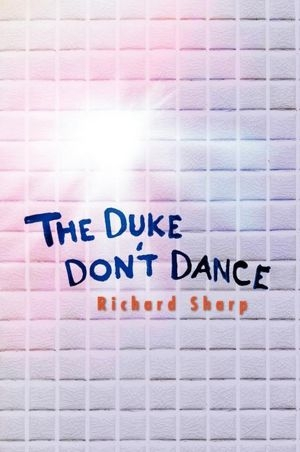
The Duke Don't Dance
When Paul Simon wrote, “The words of the prophets are written on the subway walls,” he undoubtedly had not met Richard Sharp, whose “prophets” find other means—and places—to impart their messages.
The Duke Don’t Dance, Sharp’s new novel, refers to an enigmatic message found on a men’s room wall. Whether the words are truly prophetic or simply unfathomable hardly matters; for Sharp, they represent a generation stuck between America’s so-called “Greatest Generation” of the World War II era and the explosion of “baby boomers,” whose own introduction to and influence on society would soon follow. Some may think of this middle group as “early boomers,” but Sharp makes a clear distinction and argues for them as a generation apart.
This is not a book to be skimmed or read lightly. It is dense, in the way the best homemade bread or cake may be dense: it is hearty and earthy, with little air or fluff. Miss a paragraph, and the next one simply won’t make sense. The story will appeal to those of the earliest demographic who were drafted into the Vietnam War; those for whom The Doors were a new, sincere inspiration; those who today may be retired but are still wondering exactly how that came to pass. At the same time, “boomers” of slightly later birth will be enthralled with this text. They, too, will recognize the real history outlined here, even if at the time of the events they were too young to fully recognize the implications.
“There is nothing more maddening than being accepted for who you are by someone who really doesn’t have a clue who you are or how you got there,” thinks one of Sharp’s seven main characters. The statement is itself indicative of Sharp’s characterization of a generation. Sharp writes of “unenlightened” individuals—those of “superficial understanding,” full of imperfection. His characters live idiosyncratic lives, lives that both collide and intertwine over the course of decades, from the 1960s through the 2010s, but lives that never quite seem to satisfy. These are individuals for whom “the price of ambition was too high, requiring too many compromises.” The author’s statements are both controversial and chilling, and are undoubtedly food for thought.
Sharp touches all the bases as he takes his readers through The Duke Don’t Dance. Quite naturally, the Vietnam War figures prominently, as do Laos, Bangkok, the CIA, the DEA, and the Cold War. The author’s familiarity with certain aspects of the Washington, DC, metro area’s subculture rings true, as do his references to the cultural influences—music, films, and the like—of each specific era. Even his modern-day mention of The Rentals cannot go unnoticed. Sharp’s flair for details is exquisite and delightful; it is almost a challenge to catch them all.
The Duke Don’t Dance is beautifully written. The story is heady, and the text is intense. Tongue-in-cheek moments abound for the reader willing to look for them. The tale itself is forthright, yet simultaneously equivocal, much like one particular character’s mental “labyrinth of doubts, fears and incessant quest for answers to the unanswerable.” This is one man’s fictionalized story of a generation, and readers looking for their own answers may not find them here. Nonetheless, Sharp speaks well for a generation whose impact has been substantial, and his message reads loud and clear.
Reviewed by
Cheryl M. Hibbard
Disclosure: This article is not an endorsement, but a review. The publisher of this book provided free copies of the book and paid a small fee to have their book reviewed by a professional reviewer. Foreword Reviews and Clarion Reviews make no guarantee that the publisher will receive a positive review. Foreword Magazine, Inc. is disclosing this in accordance with the Federal Trade Commission’s 16 CFR, Part 255.
